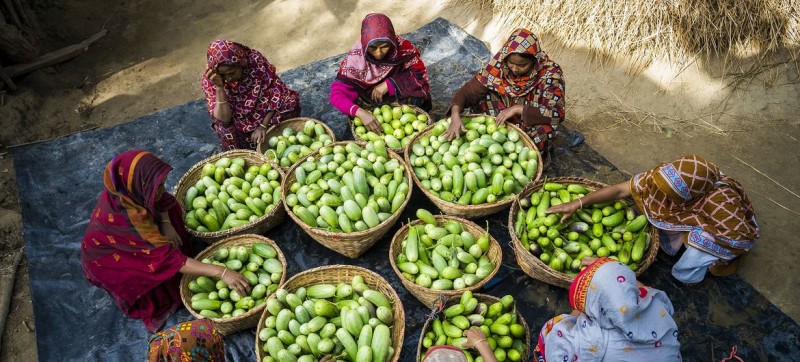Female participants of a WFP-run food security livelihood programme sort freshly collected eggplants in Cox’s Bazar in Bangladesh. Safe food is one of the most critical guarantors for good health, the UN said on Tuesday – the fourth global World Food Safety Day – aiming to mobilize action for preventing, detecting and managing foodborne risks and improving human health. Benefits of safe food for well-being include improved nutrition and reduced absenteeism in schools and in the workplace.
What’s the connection between food safety and food security? #WorldFoodSafetyDay #FoodSafety #FoodSecurity pic.twitter.com/19v110assl
— Food and Agriculture Organization (@FAO) June 7, 2022
According to the Food and Agriculture Organization (FAO), only when food is safe can we fully benefit from its nutritional value and from the mental and social benefits of sharing a safe meal.
“Unsafe foods are the cause of many diseases and contribute to other poor health conditions, such as impaired growth and development, micronutrient deficiencies, noncommunicable or communicable diseases and mental illness,” said FAO.
Avoidable illness
Foodborne diseases affect one in 10 people worldwide each year, ranging from diarrhoea to cancers. Fortunately, most are preventable.
The way we build food systems and supply chains can prevent infectious and toxic hazards, as well as microbial pathogens (bacteria, viruses and parasites), chemical residues, and biotoxins, from reaching our plates.
“We need to transform food systems to deliver better health, and we need to do so in a sustainable manner,” said FAO. “Food systems policy makers, practitioners and investors should reorient their activities to increase the sustainable production and consumption of safe foods.”
The UN agency also reminded that systemic changes for better health will lead to safer food – a critical enabler of long-term development and a prerequisite to achieve the Sustainable Development Goals (SDGs).
Did you know?
- Unsafe food containing harmful bacteria, viruses, parasites or chemical substances causes more than 200 diseases.
- Recent estimates indicate that the impact of unsafe food costs low and middle-income economies around $95 billion in lost productivity each year.
- Good hygiene practices in the food and agricultural sectors help to reduce the emergence and spread of foodborne diseases.
Steps to health
The World Health Organization (WHO) has called for a set of specific actions across multiple sectors to make food safer, beginning with policy measures to strengthen national food safety systems and ensure compliance with food safety standards.
This requires collaboration at local, national, regional and global levels.
Food businesses must comply with international food standards and engage employees, suppliers, and other stakeholders to grow and develop a food safety culture.
At the same time, educational institutions and workplaces need to promote safe food handling and support food safety.
And consumers have to practice safe handling at home and stay informed, FAO added.
Partners in wellness
Since 2018 when the General Assembly established the day, FAO and WHO have jointly facilitated its observance, in collaboration with Member States and others.
FAO addresses food safety issues along the food chain during production and processing, while WHO typically oversees relationships within the public health sector.
World Food Safety Day 2022 comes ten days after the adoption of the updated WHO Global Strategy for Food Safety, a milestone in the work to promote health, keep the world safe and protect the vulnerable.




Comments are closed.